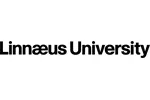We're moving! This site will be relocating to goingto.university in 2026. Please update your bookmarks to the new address.


Sweden
Linnaeus University| The award | How you will study | Study duration | Course start | Domestic course fees | International course fees |
|---|---|---|---|---|---|
| Master Degree | Full-time | 2 years | August | SEK 77400 per semester | SEK 77400 per semester |
The master program in Environmental Science and Sustainability is focused on the environmental domain of sustainable development but also considers the interrelated social and economic domains. It aims to develop abilities to the independent use of scientific based information for the understanding of the environment and its degradation related to human activities and hazards, as well as for assessment of available and future mitigation options. The programme is meant to provide practical (hands-on) experience and the students will be encouraged to participate of on-going research projects at the Department of Biology and Environmental Science.
During the first year, the students will be introduced to environmental risk analyses principles, risk management of contaminated sites, and environmental risk communication. Practical activities will include field work (including sampling and monitoring strategies for soils, sediments, water, and/or air) and data processing and analyses. The students will form research groups and work with real cases, in order to understand background environmental conditions, degradation and mitigation. Students fulfilling all requirements of the first-year programme may apply for a Magister degree in Environmental Risk Analyses (60 credits).
The second year will include work in research groups and the consolidation of scientific research methods. A major part of the second year will be dedicated to the individual research project (master thesis). The project will be supervised by a researcher in the Department of Biology and Environmental Science and is carried out in within fields related to environmental science and sustainability.
The knowledge acquired during the two years of the programme can be directly applied to environmental management and research projects and surveys, both within authorities and private enterprises, and is also designed to be an initial step for advanced studies at Ph.D. level.
Basic eligibility for second-level studies and special eligibility: (1) 90 credits in biology, geology, chemistry, engineering and/or environmental science, including an independent project/degree project (e.g., B.Sc. thesis) worth at least 15 credits or the equivalent (2) 15 credits in chemistry (3) English B/6, or the equivalent
Below are some suggested courses at other providers that you may also be interested in:
Foundation Year to prepare for the MBA program (1 year) Foundation Year
Vatel Bordeaux
Find out moreIf you do not meet the entry requirements for this course then consider one of these postgraduate preparation courses from another institution:
Graduate Diploma of Engineering (Safety, Risk and Reliability)
Engineering Institute of Technology
Find out morePre-Master's Programme in Business, Economics, Finance and Management
ONCAMPUS Southampton
Find out moreThere are 46 other courses listed from Linnaeus University. A selection of these are displayed below:
Business Process Control and Supply Chain Management - Frontiers in Logistics & Supply Chain Management Master Degree
Linnaeus University
Find out moreBusiness Process Control and Supply Chain Management - Frontiers in Management Accounting & Process-based Control Master Degree
Linnaeus University
Find out moreJoin the StudyLink email list and never miss a chance to turn your study abroad dreams into reality!
